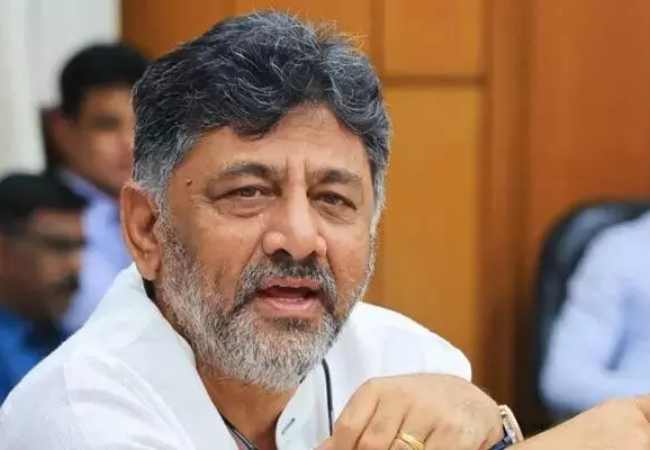Chandigarh, Aug 19: Punjab Education Minister Harjot Singh Bains Saturday said he was bitten by a venomous snake during a rescue operation in a flood-hit area in Anandpur Sahib in Rupnagar district.
Bains said he was bitten by the snake on the night of August 15 and his condition is better now.
Many areas in Punjab's Rupnagar, Gurdaspur, Hoshiarpur, Kapurthala and Ferozepur districts were flooded following the release of excess water from the Pong and Bhakra dams because of heavy rains.
After the release of the excess water from the two reservoirs, the water level in Beas and Sutlej rivers had risen, flooding the low-lying areas near their banks.
In Rupnagar, several villages, including Harsa Bela, Bhalan, Bhanam, and Bela in Anandpur Sahib and Nangal were inundated. Bains had been on a visit to the flood-hit areas in Anandpur Sahib, his constituency.
"With God's grace, the flood situation in my constituency, Shri Anandpur Sahib, is better now," said Bains on X, previously known as Twitter.
"During the rescue operations, I was bitten by a venomous snake on the intervening night of 15th Aug, but that didn't deter my determination to help my people.
"With God's grace and people's love & blessings, I'm alright now. The effect of the venom is receding and my blood tests have come out normal as well," he further said.
With God's grace, the flood situation in my constituency, Shri Anandpur Sahib, is better now.
— Harjot Singh Bains (@harjotbains) August 19, 2023
During the rescue operations, I was bitten by a venomous snake on the intervening night of 15th Aug, but that didn’t deter my determination to help my people.
With God’s grace and… pic.twitter.com/vQkX14xltK
Let the Truth be known. If you read VB and like VB, please be a VB Supporter and Help us deliver the Truth to one and all.
Bengaluru (PTI): Karnataka has proposed a new Information Technology Policy for 2025–2030, offering extensive financial and non-financial incentives aimed at accelerating investments, strengthening innovation and expanding the state's tech footprint beyond Bengaluru.
The Karnataka Cabinet gave its nod to the policy 2025–2030 with an outlay of Rs 445.50 crore on Thursday after the Finance Department accorded its approval.
The policy introduces 16 incentives across five enabler categories, nine of which are entirely new, with a distinctive push to support companies setting up or expanding in emerging cities.
Alongside financial support, the government is also offering labour-law relaxations, round-the-clock operational permissions and industry-ready human capital programmes to make Karnataka a globally competitive 'AI-native' destination.
According to the policy, units located outside Bengaluru will gain access to a wide suite of benefits, including research and development and IP creation incentives, internship reimbursements, talent relocation support and recruitment assistance.
The benefits also include EPF reimbursement, faculty development support, rental assistance, certification subsidies, electricity tariff rebates, property tax reimbursement, telecom infrastructure support, and assistance for events and conferences.
Bengaluru Urban will receive a focused set of six research and development and talent-oriented incentives, while Indian Global Capability Centres (GCCs) operating in the state will be brought under the incentive net.
Incentive caps and eligibility thresholds have been raised, and the policy prioritises growth-focused investments for both new and expanding units.
Beyond incentives, the government focuses on infrastructure and innovation interventions.
A flagship proposal in the policy is the creation of Techniverse -- integrated, technology-enabled enclaves developed through a public-private partnership model inside future Global Innovation Districts.
These campuses will offer plug-and-play facilities, artificial intelligence and machine learning and cybersecurity labs, advanced testbeds, experience centres, and disaster-resistant command centres.
There will also be a Statewide Digital Hub Grid and a Global Test Bed Infrastructure Network, linking public and private research and development, and innovation facilities across Karnataka.
The government has proposed a Women Global Tech Missions Fellowship for 1,000 mid-career women technologists, an IT Talent Return Programme to absorb experienced professionals returning from abroad, and broad-based skill and faculty development reimbursements.
Shared corporate transport routes in Bengaluru and tier-two cities will be designed with Bengaluru Metropolitan Transport Corporation and other transport entities to support worker mobility.
The government said the policy is the outcome of an extensive research and consultation process involving TCS, Infosys, Wipro, IBM, HCL, Tech Mahindra, Cognizant, HP, Google, Accenture and NASSCOM, along with sector experts and stakeholder groups.
It estimates an outlay of Rs 967.12 crore over five years, comprising Rs 754.62 crore for incentives and Rs 212.50 crore for interventions such as Techniverse campuses, digital grid development, global outreach missions and talent programmes.





